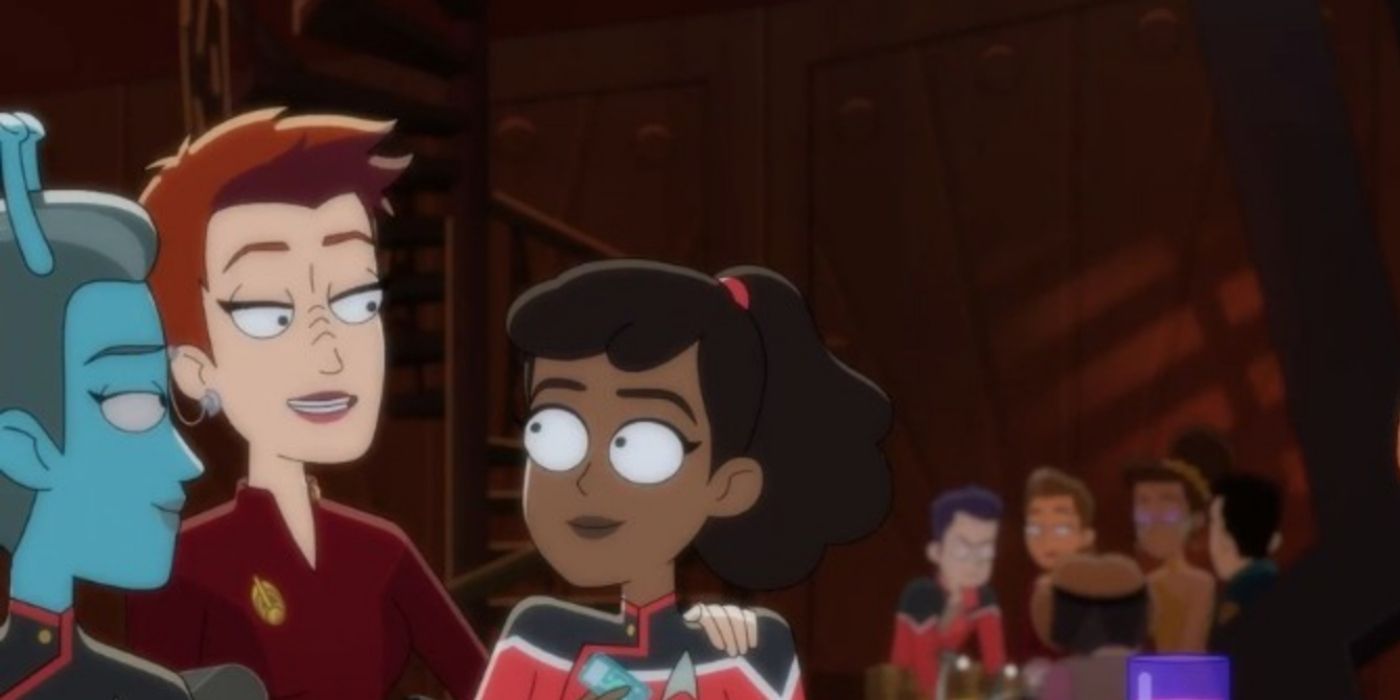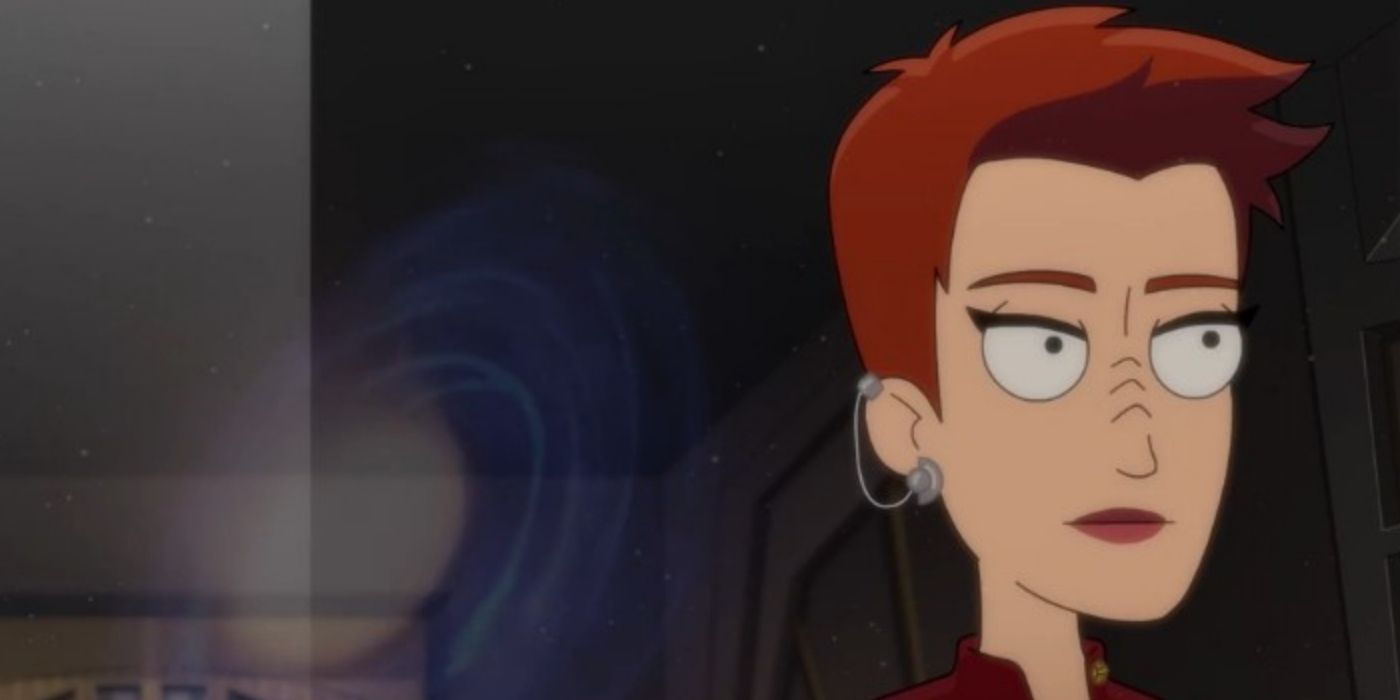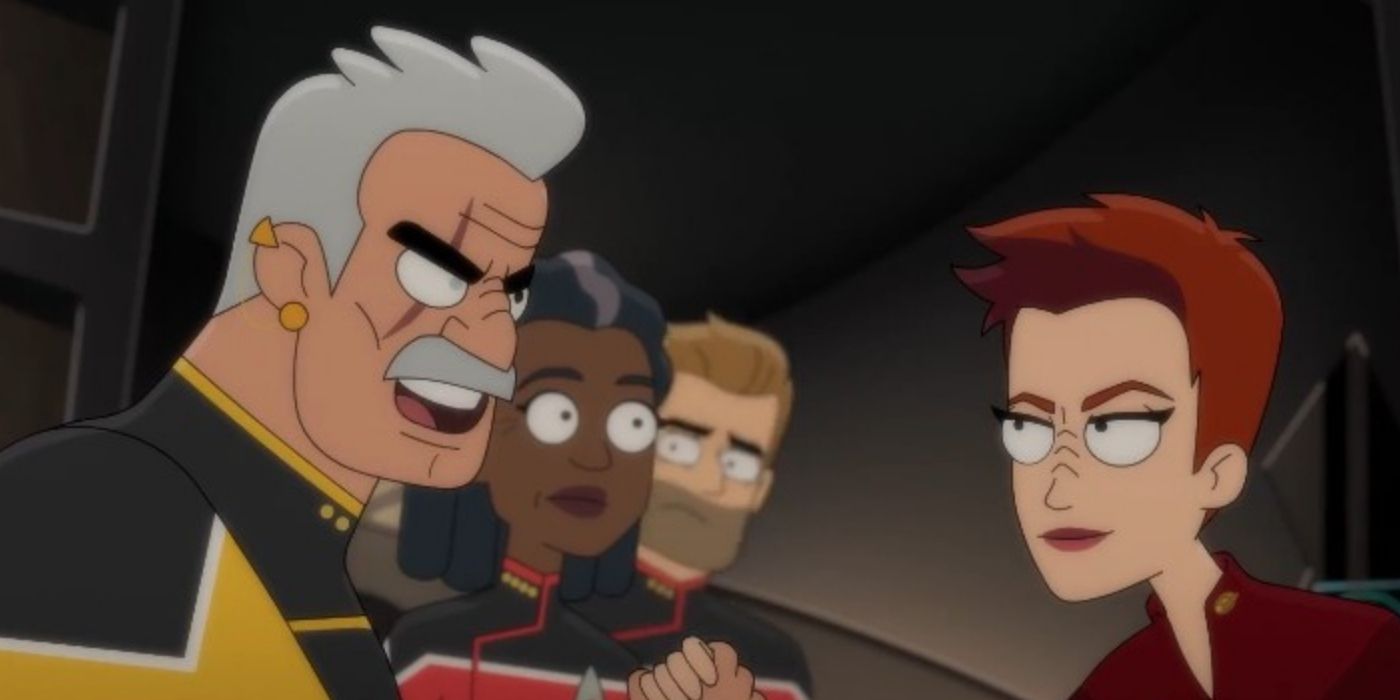The following contains light spoilers for Star Trek: Lower Decks Season 3, Episode 6, "Hear All, Trust Nothing," now streaming on Paramount+
One of the more complex characters in the Star Trek franchise, Kira Nerys, of Star Trek: Deep Space Nine, presented a unique perspective on women characters in the sci-fi universe at a time when those layers had been largely absent. Initially bristling against the fandom, Nana Visitor's performance as Kira has endured, and she is now often celebrated as one of the franchise's most compelling characters. All of that lends Visitor's reprisal of the role in Star Trek: Lower Decks an additional layer.
During an interview with CBR ahead of the premiere of the sixth episode of Star Trek: Lower Deck's third season, "Hear All, Trust Nothing," now streaming on Paramount+, Nana Visitor discussed returning to the role of Kira. She touched on seeing the Deep Space Nine characters integrate so easily with the more comical tone of Lower Decks and reflected on why she and other veterans of the franchise always seem happy to reprise their roles.
CBR: First off, congrats on the episode! It's a really fun entry in the series, and it's great seeing you back as Kira.
Nana Visitor: It really is. My favorite thing in the episode [is] the view of the space station at the beginning of the episode. And the joke at the top -- that made me laugh so hard.
Starting off, this is a pretty perfect return for Kira. She's perfectly in character with your earlier portrayal of the character but tuned in for the comedic element of Lower Decks. What was it like returning to the character like this?
Well, first of all, Kira is just, she's ready to come out at any moment -- in my own life, too. So it was almost a relief to be able [to] say it's okay for her to be out. So that was delightful, and the tone -- it's still Kira. If you start with the same ingredients, the same intensity, the same personality, but it's just a change in tone, just as it would be if you put it on stage.
As TV animation, you don't get to add facial expressions. You can't depend on your eyes to do talking. So this is a very amped-up version of everything -- all of that goes into your voice. It's a slightly brighter tone, but that's just because all the colors have to be in your voice.
Do you approach the character any differently, just having the vocal performance to rely on?
I looped Kira for seven years. Anytime a door opened or anything happened, there was a lot of noise that had to be covered, and so we had to loop a lot of scenes -- it would be several hours. So I was used to being Kira in front of a mic. This, though, was so collaborative. It would just be me and the image of me saying the words, so I would have to match it.
That was kind of an interesting game, too. This was a different game entirely because I had people that I hadn't worked with before, all virtually in the room with me on screens, saying, "How about this? How about that? Okay, now think of that." It was like a very fast back-and-forth tennis game that was intense and exciting. I felt like I was playing tennis with really good players, and that always helps your game... Give them as many choices as possible feels like what the job is. You know, within the spectrum of what you see your character as, then you get to see it come to life.
One of the best aspects of the episode is how Kira is cemented so quickly as part of this take on the world. She has these connections with the rest of the cast, especially Shaxs and Beckett. What was it like stepping back into this role, into that kind of inherent place in this take on the franchise?
I loved that there was an immediacy to [Kira and Shaxs'] friendship, that there was a history. They gave me a history on the show. That is a gift... You know, they made me feel everybody in that world, everybody that was virtually in that room with me, they made me feel safe and welcomed and free to play. There was easy collaboration, where no one's afraid to feel like, "Oh, I've got to go loose." That was a joy. It was a very safe environment -- a perfect place to come back.
Coming back to this role, what has surprised you the most about Kira and the way the Star Trek fandom has accepted her?
Well, that acceptance surprised me because back in the day, she wasn't so well received. There was a lot of pushback from men and women who said [Kira's] not the way a woman shows strength -- as if there wasn't multiple ways women can show strength. Everything felt so prescribed for how a woman in my position was supposed to behave. It was very much the culture of the time.
As the culture has progressed, Kira seems less of an anomaly. It's been remarkable to watch and go, "Oh my god, here's a 15-year-old boy, going 'I think Kira is really cool,' instead of being like, 'what a bitch,'" you know? That's huge progress. So I get to see how the culture has evolved over the last 30 years.
So, how excited were you to try and just punch Quark right in the back of the head?
It's very satisfying. I love [Quark's original actor, Armin Shimerman]. He is one of the best people I know, but Quark is a totally different thing. If Armin puts that head on, I don't see him anymore. I see someone I can almost not tolerate.
So many Star Trek veterans have been appearing in Lower Decks, and they all seem to be having a blast with it. I've got to ask, as a performer, what makes returning to Star Trek, even in this kind of limited fashion, so appealing?
As a performer, it's something that I do for myself, and I've seen other actors who seem to feel the same thing -- it's a sense of responsibility. With Star Trek, we're not just telling stories for comfort or for distraction. We're telling stories that offer people something...
It can be a distraction. It can be comfort, but it can also be a reminder that you're not alone -- that you can feel like the other but know there are others like you. There's hope in the future. We may be having trouble with diversity now, but there is a place in the future where we won't. I think those are important stories to do.
New episodes of Star Trek: Lower Decks are now streaming on Paramount+.



